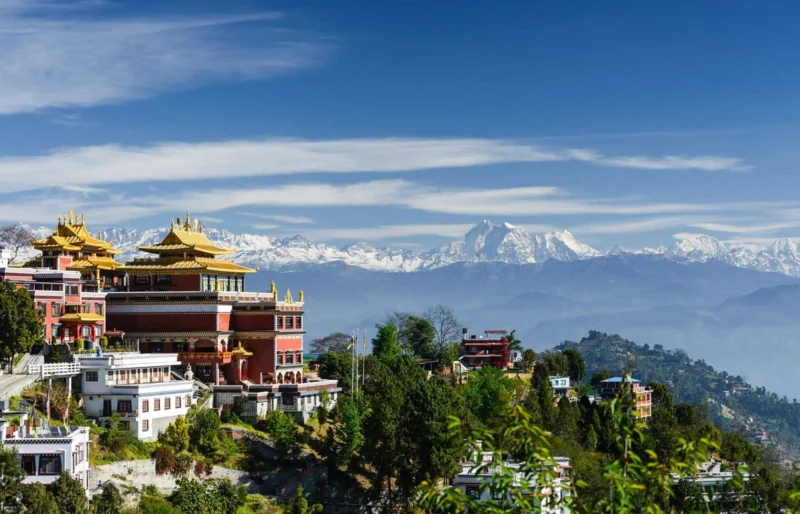Food and Cuisines
- Best price guaranteed
- No booking fees
- E-ticket/Mobile voucher

OVERVIEW
Warning: Undefined array key "highlights" in /home/u506218847/domains/tourofnepal.com/public_html/wp-content/themes/tourofnepal/single.php on line 109
-
ITINERARY
Nepal has unique eating habits and cultural practices that differ from those in Europe and other countries. Traditionally, Nepalis sit on the floor and eat with their right hand, using plates, after washing their hands and face. It is considered impolite to eat or even drink tea or coffee before brushing one’s teeth. During meals, Nepalis avoid talking, and it is customary for the host to eat after the guest has finished, focusing solely on serving the guest. This might feel unusual to foreigners, but it is a sign of respect and hospitality in Nepali culture.
Vegetarianism in Nepal
Many Nepalis are vegetarians due to religious or moral reasons. Even eggs are often avoided by some. The typical daily meal pattern consists of three meals a day: breakfast, lunch, and dinner.
Breakfast
In hotels and restaurants across Nepal, breakfast usually includes items like cornflakes, toast with jam, butter, or honey, and eggs. These options are commonly found in tourist-friendly establishments.
Lunch and Dinner
The traditional Nepali meal is known as “Dal Bhat Tarkari.” Dal is a lentil soup, providing an important source of protein, while Bhat refers to rice, typically consumed in large portions. Tarkari is a curry made with a mix of vegetables like potatoes and cauliflower, cooked with a blend of spices known as masala. This meal is a staple across Nepal and is consumed daily by most Nepalis.
International Food
In cities like Kathmandu, Pokhara, and Chitwan, as well as in the Himalayan regions, international food has become widely available. Western and local restaurants serve both Nepali and continental cuisines. Even along popular trekking trails, simple restaurants provide a variety of international and local food options for travelers.
Tap Water
Tap water is not safe for tourists to drink in Nepal. While locals drink tap water regularly, having adapted to it over time, tourists should rely on bottled mineral water or treated water. Hotels and restaurants in middle-class and luxury establishments usually provide boiled or filtered water. Be aware that in the mountains, mineral water can be relatively expensive.
WHAT'S INCLUDED
Warning: Undefined array key "include" in /home/u506218847/domains/tourofnepal.com/public_html/wp-content/themes/tourofnepal/single.php on line 129
WHAT'S EXCLUDED
Warning: Undefined array key "exclude" in /home/u506218847/domains/tourofnepal.com/public_html/wp-content/themes/tourofnepal/single.php on line 146